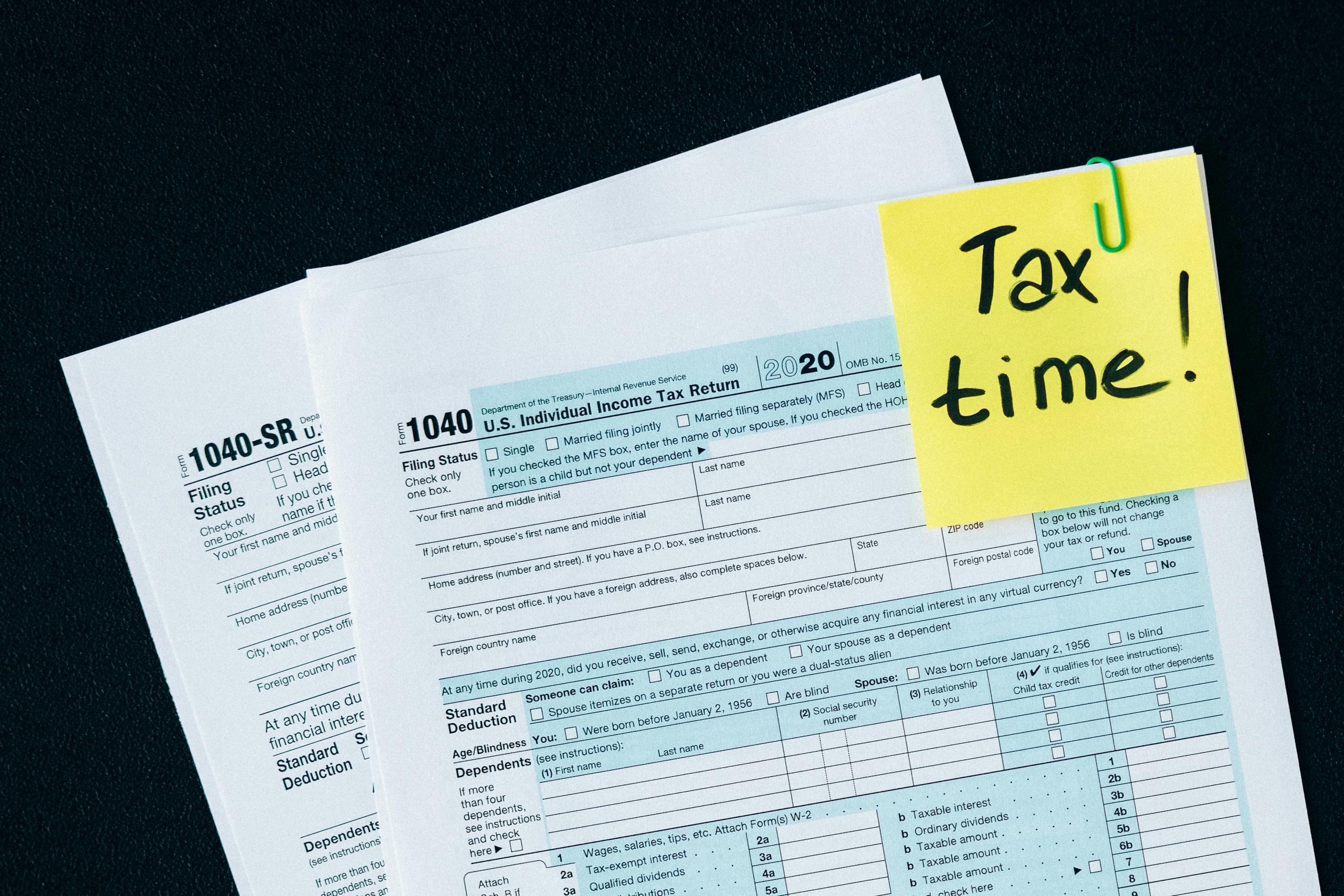When giving your employees company swag, you might wonder about the tax implications. According to the IRS, most gifts like gift cards, gift certificates, and cash equivalents are always taxable. Even if given for holidays or birthdays, these types of gifts are considered part of the employee’s income.

However, physical gifts of low value, such as a$50 gift collection for a company milestone, usually aren’t considered taxable. It’s important to understand these distinctions to avoid any tax surprises for you or your employees.
Navigating the rules around tax-deductibility can be challenging as well. While the IRS allows you to deduct up to $25 per employee per year, additional costs for things like engraving and shipping may be excluded from this limit. This allows you some flexibility in showing your appreciation without a significant tax burden.
Understanding Company Swag

Company swag refers topromotional items such asbranded clothing, office supplies, or other tangible personal property that businesses distribute to employees or clients. Below, we explore whatcompany swag is, the types of items commonly given, and the purpose behind distributing these items.
Defining Company Swag
Company swag includes items branded with a company logo or message. These items are usually given to employees, clients, or potential customers. The term “swag” stands for “stuff we all get,” and it typically refers to things like t-shirts, coffee mugs, and pens. Swag is a form of marketing and is often used to promote the company’s brand.
Swag can also include gift baskets filled with snacks or coffee. These items are meant to create positive impressions and foster goodwill. Swag can be a part of a larger marketing strategy to build brand recognition and loyalty.
Types of Swag Items
There are many types of swag items that companies can distribute. Common examples include:
- Clothing: T-shirts, hoodies, hats, and jackets.
- Office Supplies: Pens, notebooks, mousepads, and USB drives.
- Drinkware: Coffee mugs, water bottles, and tumblers.
- Gift Baskets: Assorted snacks or gourmet coffee packs.
- Tech Gadgets: Power banks, headphones, and phone stands.
Each type of swag serves a different purpose. Clothing can be a walking advertisement, while office supplies are useful for everyday tasks. Drinkware is always appreciated for its practicality, and tech gadgets can enhance your digital life. Gift baskets offer a more personal touch.
Purpose Behind Distributing Swag
The primary purpose of distributing company swag is to promote the brand. When employees wear branded clothing, it serves as free advertising. Swag also helps in building team spirit and enhancingemployee morale. It makes employees feel valued and appreciated.
For clients, receiving swag can strengthen business relationships. It shows that the company values their partnership. Swag items can also be used as incentives or rewards for reaching certain goals or milestones.
Distributing swag can lead to better brand recognition. When people use branded items in public, it increases visibility and makes the brand more memorable. It’s an effective, low-cost marketing strategy that benefits both the company and its recipients.
Tax Regulations and Company Swag

Understanding the tax regulations around company swag can help ensure compliance and avoid unexpected tax liabilities. The IRS has specific rules that determine when company swag becomes taxable.
The Role of the IRS in Taxable Benefits
The IRS plays a significant role in defining what constitutes a taxable benefit. Company swag can be considered a “Fringe Benefit” which is generally taxable unless it falls under specific exclusions. According to IRS tax codes, both cash and cash equivalents—such as gift cards—are always considered taxable.
The IRS requires employers to report these as part of an employee’s gross income. You should refer to the IRS’s Employer’s Guide to Fringe Benefits to get detailed information. Make sure you maintain accurate records to ensure compliance and proper reporting.
Identifying Taxable Swag
Not all company swag is considered taxable. Swag with a value over $75 generally falls under taxable income, as it does not meet the IRS’s de minimis fringe benefit criteria. Examples of taxable swag include high-value items like gift cards, expensive electronics, and luxurious branded merchandise.
However, items of minimal value distributed infrequently—such as pens, notepads, or holiday turkeys under $75—may not be taxable. To stay compliant, you should carefully evaluate the value of any swag given and consult IRS guidelines.
Exceptions and Exclusions in Tax Law
There are several exceptions and exclusions in tax law when it comes to company swag. Physical gifts given for special occasions that don’t exceed a value of $75, often termed as de minimis fringe benefits, may not be taxable. Additionally, achievement awards or safety awards under certain limits may also be excluded from taxable income.
Refer to IRS guidelines to find out more about these exceptions. Proper documentation and understanding of these rules can save you and your employees from unnecessary tax complications. Always consult the most recent IRS regulations to confirm that your practices remain compliant.
Employee Gifts and Taxation
Understanding how employee gifts are taxed is important to avoid unexpected tax bills. This section covers the tax implications of non-cash gifts, gift cards, and the specific criteria for de minimis fringe benefits.
Non-Cash Gifts and Tax Implications
Non-cash gifts include items like mugs, electronics, and event tickets. According to IRS rules, these gifts are usually taxable. If the gift has a clear market value, it is treated as part of the employee’s income. Small, infrequent gifts with minimal value, such as a holiday turkey or flowers for a special occasion, may not be taxable if they qualify as de minimis fringe benefits.
Gift Cards and Cash Equivalents
Gift cards and cash equivalents, such as gift certificates, are almost always taxable. The IRS treats these items like cash because they can be easily converted into money. Even if the value is small, the full amount is considered taxable income. This rule applies regardless of the occasion, whether it’s for a birthday, holiday, or job well done.
Qualifying for De Minimis Fringe Benefits
De minimis fringe benefits are small benefits that are not subject to tax. To qualify, they must be infrequent and have a low market value. Examples include occasional snacks, small holiday gifts like a mug or t-shirt, and event tickets given infrequently. The main point is that these gifts should be so minor that tracking their value would be unreasonable.
Understanding these guidelines helps you avoid tax surprises and ensures compliance with IRS rules. When providing gifts to employees, consider these categories and consult your company’s tax advisor if you have any doubts.
Employer Concerns and Tax Compliance

When providing company swag to employees, you need to understand the various tax implications. Knowing how to report and value these benefits can help avoid hefty penalties.
Reporting Requirements for Employers
You must report any taxable benefits given to employees, including swag, as part of their compensation. Taxable benefits are typically included on the employee’s W-2 form.
Failure to do so could result in fines and penalties.
Employers are responsible for withholding payroll taxes on these benefits. This involves accurately reporting the fringe benefits in the payroll system and ensuring that they are taxed accordingly.
Example of what must be reported:
- Cash bonuses
- Gift cards
- Company merchandise
Errors in reporting can lead to audits and additional fines.
Calculating the Fair Market Value of Swag
To comply with tax laws, you must determine the fair market value (FMV) of the swag given to employees.
The FMV is the price an employee would pay for the item in the open market.
This value must be added to the employee’s taxable compensation. If you distribute items like company-branded water bottles or T-shirts, you need to establish their average cost.
Using resources like catalogs or online retailers can help estimate this value.
It’s important to document how FMV was calculated to avoid disputes with tax authorities.
Penalties for Non-Compliance
Non-compliance with IRS reporting requirements can result in severe penalties. Failing to report taxable benefits like company swag can lead to fines ranging from hundreds to thousands of dollars.
The IRS imposes penalties for incorrect or late filing of W-2 forms.
Employers could also face penalties for not withholding the proper payroll taxes. This includes both income taxes and employment taxes.
Audits can be triggered by discrepancies, leading to even more scrutiny. Ensuring that you follow all guidelines for reporting and taxation can save your business from these costly penalties.
Proper documentation and accurate reporting are essential to avoid challenges with tax authorities.
Recognition and Achievement Awards

Recognizing employees with awards for their achievements and years of service can boost morale and improve performance. However, there are specific tax rules that employers and employees should be aware of regarding these awards.
Tax Treatment of Employee Achievement Awards
Employee achievement awards can be tax-free if they meet certain criteria. These awards must be items of tangible personal property, not cash or cash equivalents like gift cards.
To qualify as tax-free, awards cannot be disguised wages or include vacations, meals, lodging, or tickets to events. They must also be given for safety achievements or length of service. You must follow IRS guidelines to ensure these awards are not counted as taxable income.
Length of Service and Awards
Awards given for length of service must follow strict rules to be tax-free. They need to be part of a meaningful ceremony, such as celebrating amilestone year of service. These awards can’t be given too frequently; usually, only once every five years is acceptable.
The value of these awards should stay within reasonable limits. If the value exceeds certain IRS thresholds, the excess amount becomes taxable. Safe practices include keeping awards simple and of moderate value.
Determining the Value of Awards
Calculating the value of achievement awards involves determining their fair market value. This is the price the items would sell for on the open market.
If an award’s value is below the IRS limit, it remains tax-free. However, if it exceeds the limit, the portion above the limit will be taxable. Employers must keep detailed records of awards and their values to ensure compliance with tax regulations.
Practical Tips for Employers

When giving company swag, it’s important to consider its tax implications. Consulting with tax professionals, establishing a qualified plan for employee gifts, and following best practices in gift-giving policies can help ensure compliance and avoid unexpected tax burdens.
Consulting with Tax Professionals
Engage a tax professional to review your company’s gift-giving practices. They can help you understand how the IRS views different types of gifts, such as gift coupons and cash equivalents.
Tax professionals can offer advice on fair market value and how it affects taxable income. They can also assist with calculating the exact taxable amount for gifts over specific values, like those exceeding $75.
Having expert guidance ensures you comply with tax laws and avoid penalties.
Establishing a Qualified Plan for Employee Gifts
Create a qualified plan to handle employee gifts. This involves setting up guidelines that comply with IRS regulations, such as the maximum deductible value of gifts. A typical cap is $25 per employee per year for non-cash gifts.
Set clear policies on what types of gifts are covered. This can include items like cell phones and other non-cash goods.
A qualified plan ensures your gifts are tax-deductible, which can also provide financial benefits for your company.
Best Practices for Gift-Giving Policies
Develop and enforce clear gift-giving policies within your organization. Make sure these policies are well-documented and communicated to all employees.
Keep record of the fair market value or face value of gifts and ensure they do not exceed the IRS limits. For instance, gifts such as gift coupons and items low in value should be tracked to ensure they stay within allowable thresholds.
Following these best practices can help prevent any issues related to taxable income and reporting.
Frequently Asked Questions

Here you will find answers to common questions about the tax treatment of gifts, raffle prizes, and swag provided to employees by their employers. The IRS has specific guidelines on these matters.
Are employer gifts to employees considered taxable income by the IRS?
Yes, most gifts from employers to employees are considered taxable income. These include cash, gift cards, and other forms of compensation. Cash-equivalent gifts, regardless of the amount, are always taxable.
How are raffle prizes given to employees treated for tax purposes?
Raffle prizes given to employees are typically considered taxable income. The fair market value of the prize must be included in the employee’s gross income. This is true whether the prize is cash or non-cash.
What are the tax implications of providing gift cards to employees?
Gift cards are treated as cash by the IRS and are always taxable, no matter the amount. This means the value of the gift card must be reported as income on the employee’s W-2 form.
Under what circumstances are non-cash gifts to employees exempt from taxes?
Non-cash gifts may be exempt from taxes if they qualify as de minimis fringe benefits. Examples include occasional meals, snacks, or small holiday gifts under certain value thresholds. If the total value of these gifts exceeds the de minimis threshold, they become taxable.
How does the de minimis fringe benefit rule apply to employee gifts?
The de minimis fringe benefit rule allows employers to give small, non-cash items that are infrequent and of low value. These items are not taxable. For example, a holiday turkey or a small gift for a special occasion may fall under this rule.
What are the IRS regulations regarding tax reporting for de minimis gifts to employees?
For de minimis gifts, employers do not need to report these items as taxable income on the employee’s W-2 form. However, if the gifts exceed the de minimis threshold, the value must be included in the employee’s gross income and reported accordingly.



